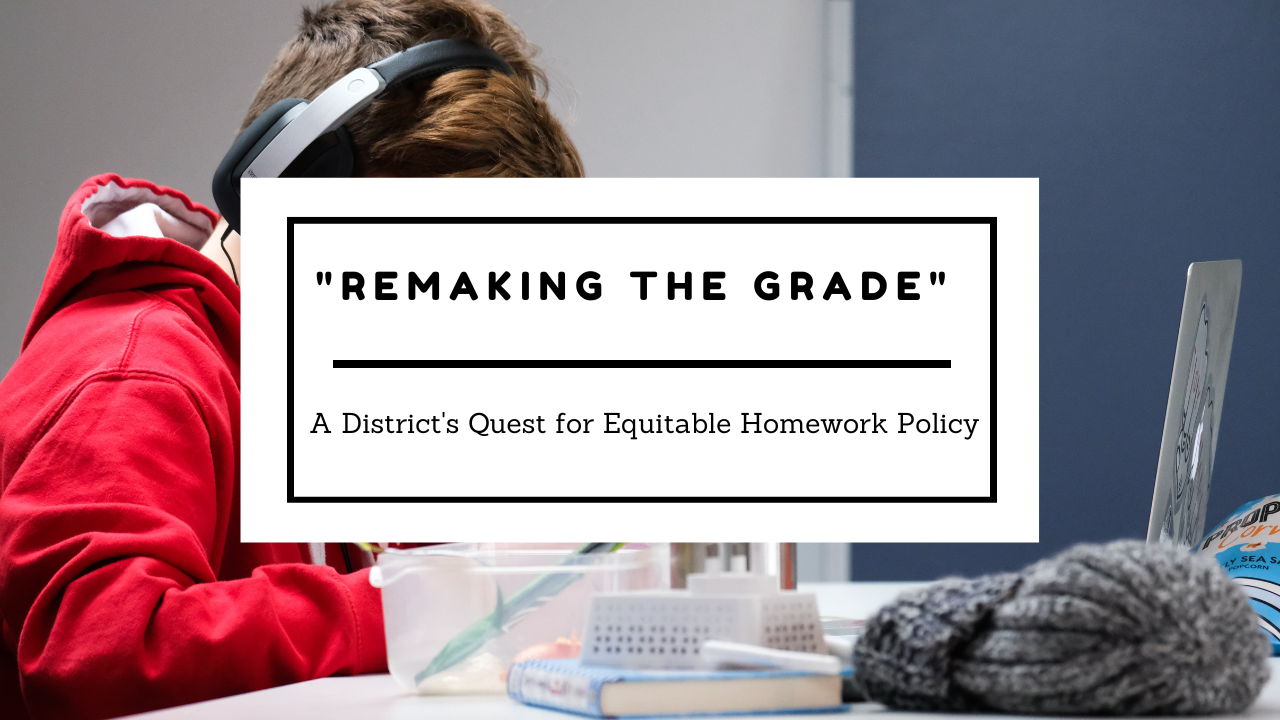 Snapshot: In this case study, Arlington, VA, faced criticism from teachers and parents when the district announced a plan to make homework more equitable by eliminating deadlines and other requirements. How can schools address inequalities in the resources available to students when it comes to homework completion? What can schools do to level the playing field between students who have ample family, social, and financial resources to support their educational success, and students who have access to fewer such resources?
Snapshot: In this case study, Arlington, VA, faced criticism from teachers and parents when the district announced a plan to make homework more equitable by eliminating deadlines and other requirements. How can schools address inequalities in the resources available to students when it comes to homework completion? What can schools do to level the playing field between students who have ample family, social, and financial resources to support their educational success, and students who have access to fewer such resources?
Case Description: Many school systems have recognized that homework can compound inequalities when students with the most social and financial resources are best able to complete out-of-school assignments. Critics allege that schools can reduce existing inequalities by reducing the burdens of homework by relaxing deadlines and other requirements.
This case study describes efforts by the Arlington, Virginia public school district to address homework inequalities by proposing that for grades 6-12, there would be no grading of homework, no late penalties for homework, no extra credit assignments, and unlimited redos and retakes. Within days, several teachers at one of the local high schools anonymously issued a statement condemning the proposal, arguing that these modifications to homework policy would cause a “decline of high expectations and rigor.” The proposal made local and then national news when an education columnist for the The Washington Post characterized the proposal as a “catastrophe” and the anonymous educators as “smart teachers fighting a dumb plan.” Rather than fostering equity, the columnist argued, abolishing grades on homework would “hurt the neediest kids.”
This case is designed to foster discussion among educators around the ethics of homework in an increasingly unequal society. Does homework exacerbate existing inequalities, or does it provide an opportunity for disadvantaged students to demonstrate and improve upon their achievements in school? How can districts write policies that promote equity when there’s disagreement about what equity actually means in practice?
Additional Resources:
-
Jay Matthews of the Washington Post brought national attention to the homework controversy in Arlington, Virgina, with his December 26, 2021 opinion piece. Click here to read his article.
-
On October 19, 2021, the school board received a presentation on the homework and grading proposal from the working group. You can see that presentation here.
-
Arlington drew heavily on Joe Feldman’s book Grading For Equity when designing their revised homework policy. This written interview with Feldman in Harvard’s Ed Magazine provides an overview of his vision for equitable grading practices, along with a link to a longer podcast interview.
-
This piece from Education Next examines the impact Grading for Equity has had in schools and explains what standards-based grading looks like in practice.

